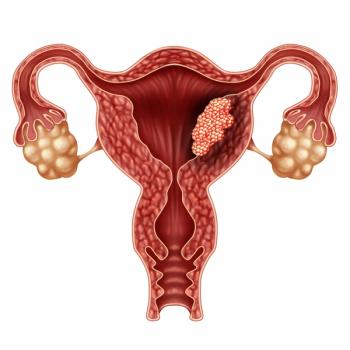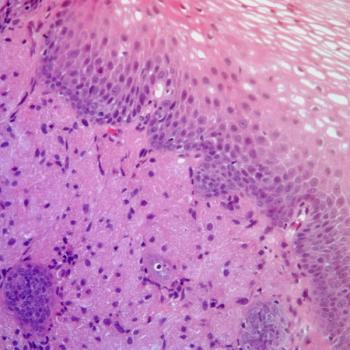
Early phase data found that use of D8 Fab CAR results in increased responses and activity for patients with relapsed/refractory multiple myeloma.

Your AI-Trained Oncology Knowledge Connection!


Ariana Pelosci, managing editor for CancerNetwork® and the journal ONCOLOGY®, has been with the team since June 2021. She specializes in both web and print, and runs the social media accounts for CancerNetwork®.
She graduated from the University of Delaware, where she studied Media Communications and minored in journalism and marketing. At heart, she is a Jersey girl, and you can always find her down the shore during her free time.
Ariana loves to read, specifically historical or contemporary fiction. Follow Ariana on Twitter @APelosci or email her at apelosci@mjhlifesciences.com.

Early phase data found that use of D8 Fab CAR results in increased responses and activity for patients with relapsed/refractory multiple myeloma.

Future-looking models see a large decrease in the cost of running sentinel lymph node assessments when artificial intelligence is used.

Six BCMA-directed, CD19-directed autologous CAR T-cell therapies are under investigation for the potential risk of T-cell malignancies.

Results from the phase 3 GCIG INTERLACE trial highlight progression-free survival and overall survival improvements with induction chemotherapy plus chemoradiotherapy for patients with locally advanced cervical cancer.

Enzalutamide plus leuprolide was assessed as part of the phase 3 EMARK study in patients with non-metastatic castration-sensitive prostate cancer at high risk of biochemical recurrence.

Patients with locally advanced or metastatic breast cancer that is hormone receptor–positive, HER2-negative breast cancer with 1 or more PIK3CA, AKT1, or PTEN alterations may now receive capivasertib plus fulvestrant.

First-line pembrolizumab plus chemotherapy has been approved by the FDA for patients with HER2-negative gastric or gastroesophageal junction adenocarcinoma.

Durvalumab plus olaparib, durvalumab monotherapy, or chemotherapy plus durvalumab saw an improvement in progression-free survival for patients with newly diagnosed advanced or recurrent endometrial cancer.

Results from the phase 3 FRESCO-2 trial support the approval of fruquintinib for patients with previously treated metastatic colorectal cancer.

Results from arm A1 of the phase 2 EDGE-Gastric study indicate that patients with gastric, gastroesophageal junction, and esophageal adenocarcinoma experienced improved responses after receiving domvanalimab/zimberelimab.

Results from the phase 3 KEYNOTE-966 trial led to the approval of pembrolizumab plus gemcitabine and cisplatin for patients with locally advanced unresectable or metastatic biliary tract cancer.

Ivosidenib monotherapy is now approved by the FDA for patients with relapsed/refractory myelodysplastic syndrome with an IDH1 mutation.

Results from an updated analysis of the DESTINY-Breast04 trial indicate an efficacy improvement when trastuzumab deruxtecan monotherapy is used for patients with HER2-low metastatic breast cancer.

Results from the phase 1/2 STARTRK-NG and phase 2 TAPISTRY trials led to the approval of entrectinib for patients who are 1 month or older with solid tumors.

Results from the phase 3 FLAMES trial show an improved progression-free survival benefit with senaparib monotherapy vs placebo across all pre-specified patient subgroups with newly diagnosed, advanced ovarian cancer.

Those with resectable non–small cell lung cancer can now receive neoadjuvant treatment with pembrolizumab and chemotherapy followed by adjuvant pembrolizumab after approval by the FDA.

Results from the phase 3 FLAURA2 trial allowed for the combination of osimertinib plus chemotherapy to be submitted for priority review.

Members of the committee reviewed findings from the phase 3 CodeBreaK200 trial, assessing the benefit of sotorasib in KRAS G12C–mutant non–small cell lung cancer.

When teclistamab was evaluated in a real-world setting, investigators determined that efficacy was similar between that and the phase 2 MajesTec-1 trial for patients with relapsed/refractory multiple myeloma.

Lucio N. Gordan, MD, reviews how the chemotherapy drug shortages have led to price gouging, potentially making treatment unavailable to patients.

Patients with myelofibrosis and anemia can now receive treatment with momelotinib following the agent’s approval by the FDA based on results from the phase 3 MOMENTUM trial.

Prescribing information has been updated to include temozolomide as adjuvant treatment for adult patients with newly diagnosed anaplastic astrocytoma or refractory anaplastic astrocytoma.

Results from the phase 1/2 BEXMAB study assessing bexmarilimab show promising activity in patients with acute myeloid leukemia.

Luspatercept, the use of which is supported by results from the phase 3 COMMANDS trial presented at 2023 ASCO, is now available for patients with low-risk myelodysplastic syndrome and anemia.

At an Around the Practice, experts from Emory University gathered to discuss treatment options for patients with multiple myeloma who are transplant-eligible or ineligible.

Patients with complete lymph node response, partial lymph node response, or negative lymph node response were less likely to experience recurrence and increased survival in esophageal adenocarcinoma.

The primary end point of progression-free survival was met in the phase 3 LITESPARK-005 trial investigating belzutifan vs everolimus in patients with renal cell carcinoma.

Data indicate that it may be safe to pause endocrine therapy for patients to attempt to conceive, and experts in the space review how it has impacted treatment strategies.

Physician burnout is not just a phase, but rather a mental health issue that has made itself well-known in the medical community, with many clinicians trying to find strategies to cope with it.

Elranatamab-bcmm is now approved for patients with relapsed/refractory multiple myeloma who have received at least 4 prior lines of therapy.